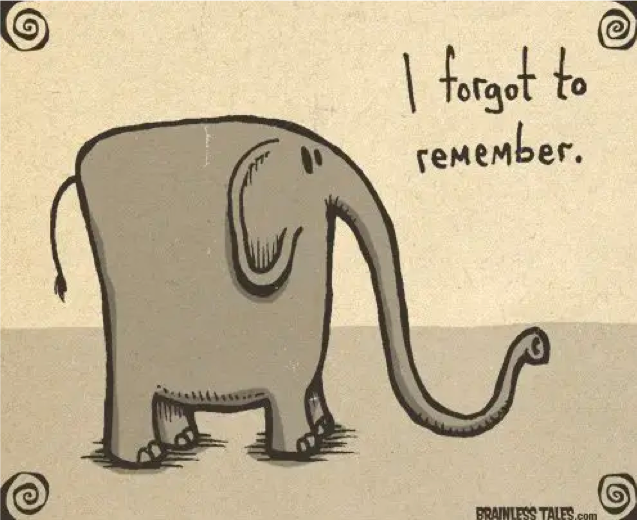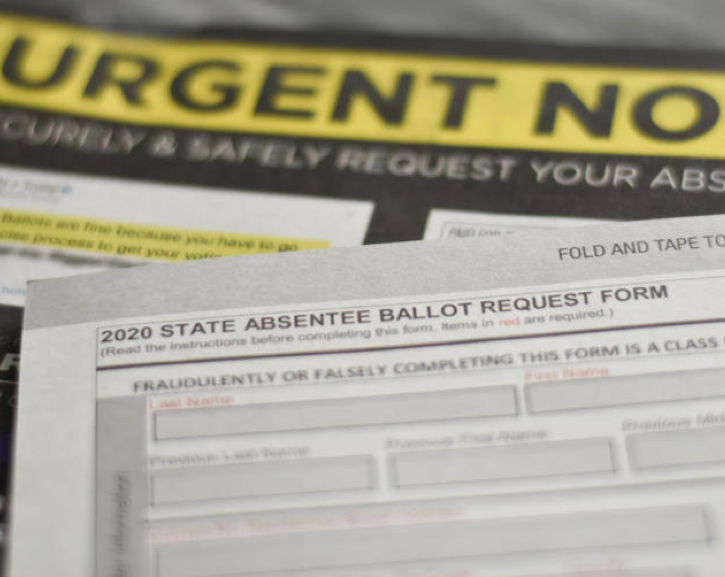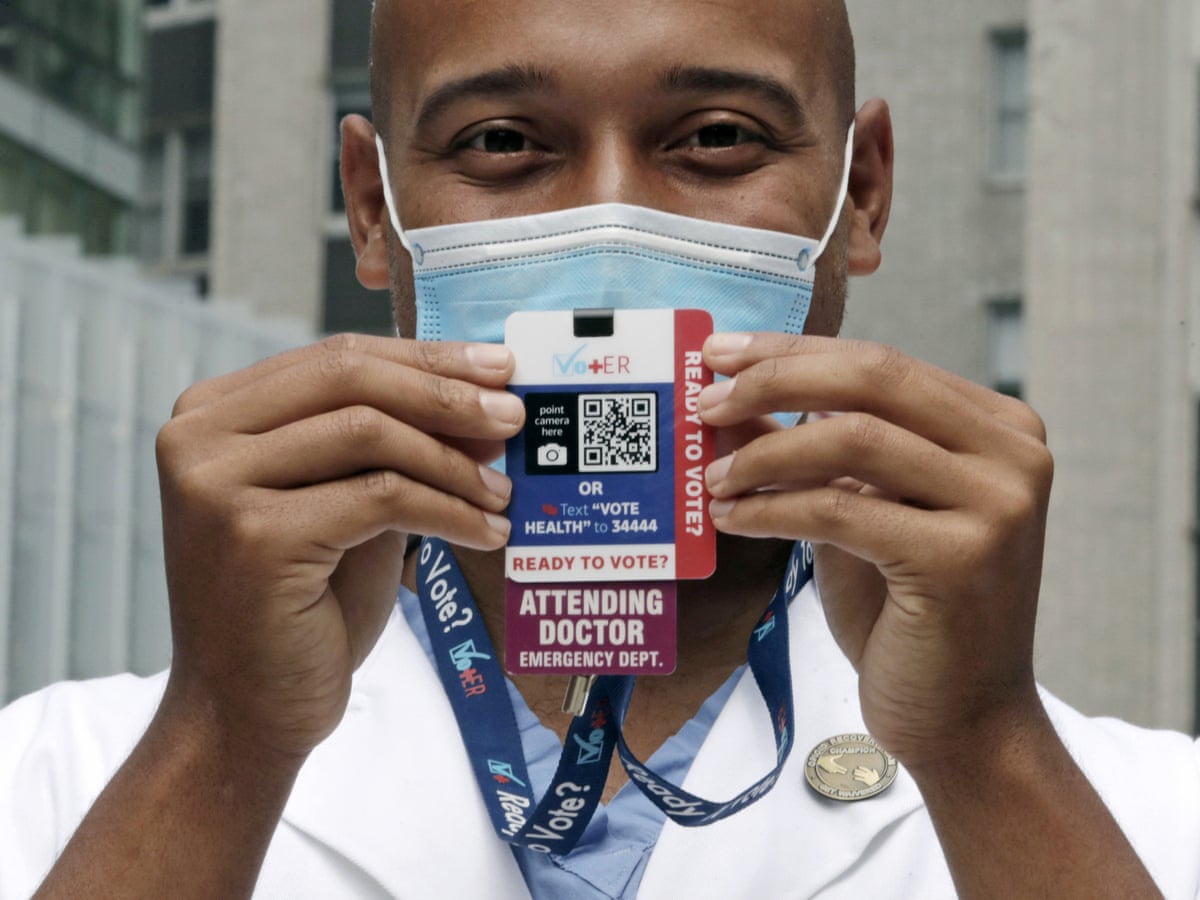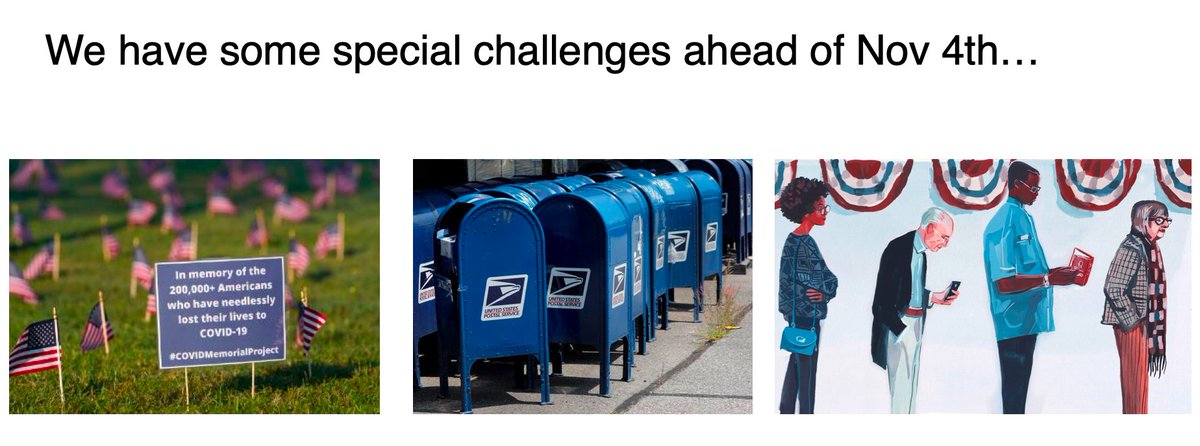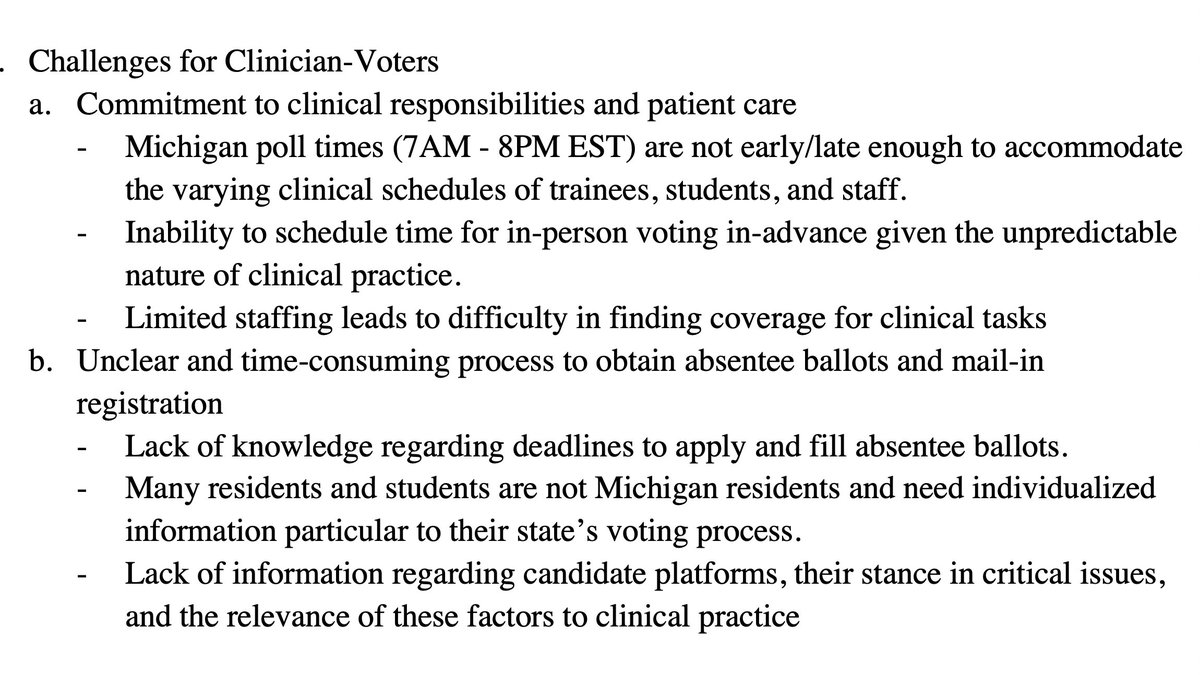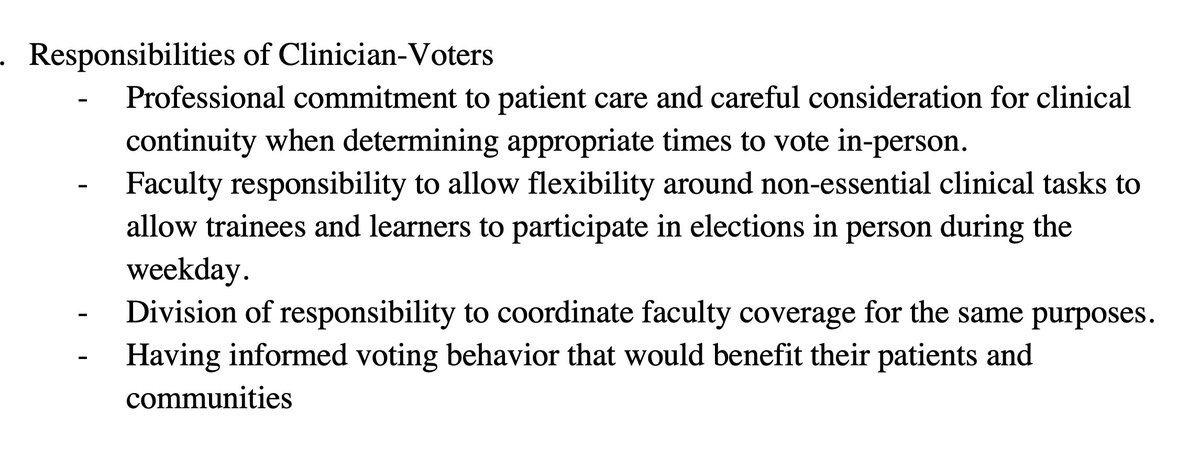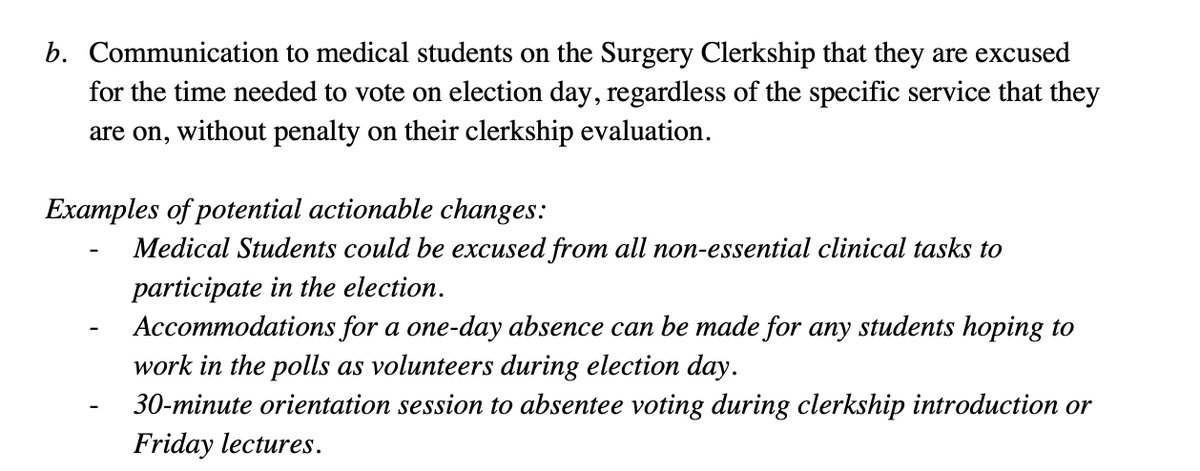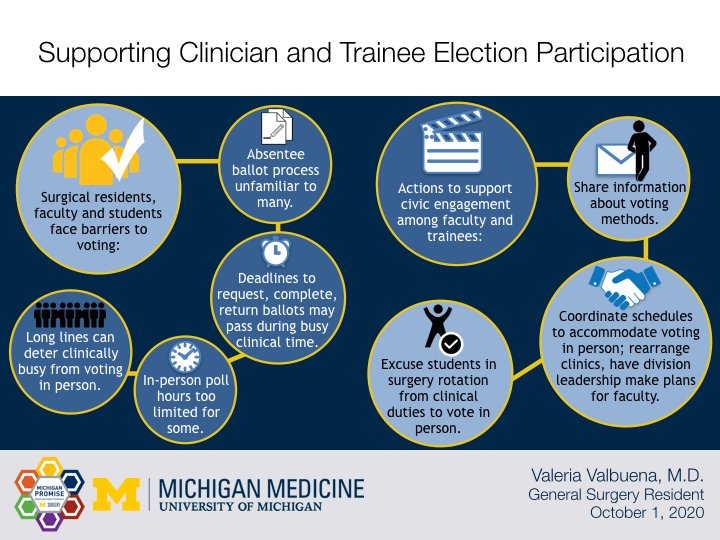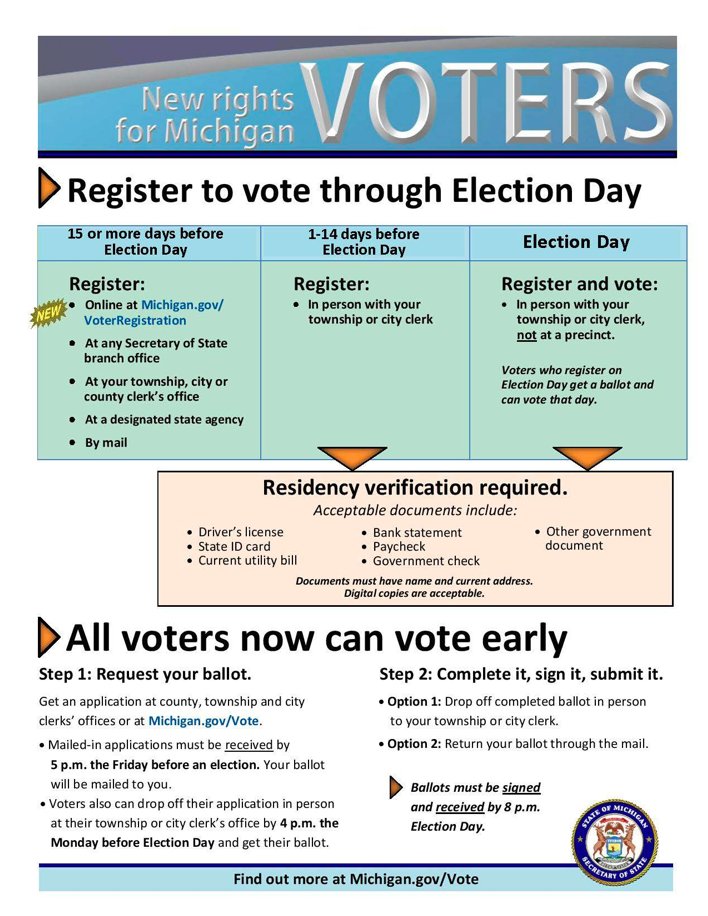We are a short 31 days away from the presidential election, and as November 3rd gets closer, many of us (Hello #MedTwitter https://abs.twimg.com/emoji/v2/... draggable="false" alt="👋" title="Waving hand" aria-label="Emoji: Waving hand">) like the rest of the country are making plans to vote (1/x)
https://abs.twimg.com/emoji/v2/... draggable="false" alt="👋" title="Waving hand" aria-label="Emoji: Waving hand">) like the rest of the country are making plans to vote (1/x)
And plans need to be made because as a profession, physicians have a dismal track record of civic engagement. There is something that breaks upon the award of a medical degree, or maybe the first call night of intern year that brings our collective election engagement down (2/x)
And so it begs the question of why. In all fairness, not voting is not just a physician ailment. A large portion of the US population did not vote in the 2016 presidential election. But we cannot deny there are things about our clinical jobs that make it hard to do so (3/x)
Polls times that are not early or late enough for our schedules, lack of time to vote in person in advance, and our own lack of knowledge about deadlines, absentee procedures, and candidate platforms turns us into uninformed voters and later disengaged voters (4/x)
So sure, we have many responsibilities as physicians that make it harder to vote, but those same responsibilities make voting so much more important. For our commitment to patient care cannot be separated from having informed voting behaviors (5/x)
More specifically, working in the complex setting we do where so much of our lives depends on each other, making sure everyone can exercise their right and duty to vote (if they choose to do so) is our responsibility as well @Vot_ER_org (6/x)
And with a global pandemic, a struggling postal system, and the expected long lines come November 3rd, even the most historically engaged voters may have issues casting a ballot.
So we need to have a plan (7/x)
So we need to have a plan (7/x)
In the surgery world I live in @UMichSurgery, we identified many barriers keeping time strapped faculty, busy surgery residents and the students in our clerkship from the polls. So we are making a plan to give us all a chance to cast our ballots (8/x)
We outlined our challenges as an organization, responsibilities to our work with patients, to each other, and to the election process as citizens who also happen to be doctors (9/x) Thank you for all the format inspiration @arikanters & @spshubeck! (9/x)
https://medicine.umich.edu/dept/surgery/news/archive/202002/it%E2%80%99s-not-magic-it%E2%80%99s-strategic-balancing-motherhood-surgery">https://medicine.umich.edu/dept/surg...
https://medicine.umich.edu/dept/surgery/news/archive/202002/it%E2%80%99s-not-magic-it%E2%80%99s-strategic-balancing-motherhood-surgery">https://medicine.umich.edu/dept/surg...
And now we are making a plan based on opportunities we identified to make things easier come election day. As @georgoff once told me after my first call of intern year: the plan does not have to be great, it does not even have to be good, but you have to have one! (10/x)
For the plan to work, it has to think about everyone, not just the people with power to make decisions, so our medical students in rotation are also included (11/x)
And so here we are! these are all suggestions we shared with division leadership and chief residents who are the clinical leaders of our inpatient teams. It is not going to fix everything, but it is a solid step toward empowering everyone to make the election a priority (12/x)
Every department, organization, and workplace is a different ecosystem, but just telling someone to please vote is not enough to make it so an average adult can take time off in the middle of a weekday to exercise their right to participate in the democracy (13/x)
So make a plan! talk to your faculty, residents, and staff and assess their needs for election day. Flex the workday, share resources, and lets make sure all of our votes count. @Michigangov has some great resources in my state, you are one @google search away from yours! (14/x)
And for those of you with extra time, there is a dire need for poll workers this election. Lines are projected to be long, and many of our patients might not get to cast their vote without our help! Signing up was really easy here in Michigan! (link below)
https://www.michigan.gov/sos/0,4670,7-127-1633_11976_98803---,00.html">https://www.michigan.gov/sos/0,467...
https://www.michigan.gov/sos/0,4670,7-127-1633_11976_98803---,00.html">https://www.michigan.gov/sos/0,467...

 Read on Twitter
Read on Twitter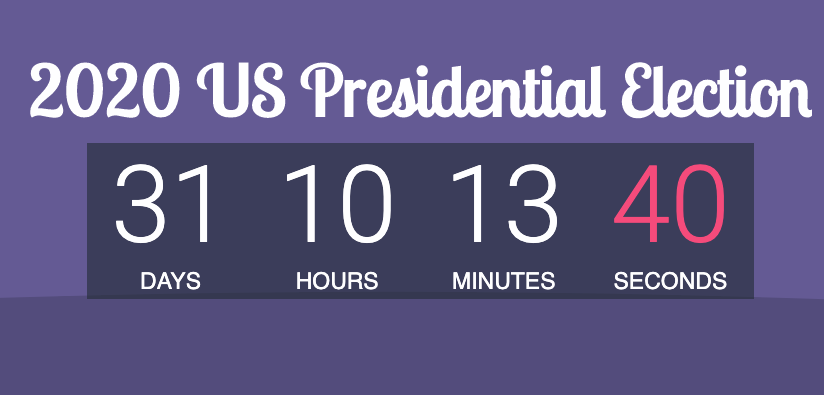 ) like the rest of the country are making plans to vote (1/x)" title="We are a short 31 days away from the presidential election, and as November 3rd gets closer, many of us (Hello #MedTwitterhttps://abs.twimg.com/emoji/v2/... draggable="false" alt="👋" title="Waving hand" aria-label="Emoji: Waving hand">) like the rest of the country are making plans to vote (1/x)" class="img-responsive" style="max-width:100%;"/>
) like the rest of the country are making plans to vote (1/x)" title="We are a short 31 days away from the presidential election, and as November 3rd gets closer, many of us (Hello #MedTwitterhttps://abs.twimg.com/emoji/v2/... draggable="false" alt="👋" title="Waving hand" aria-label="Emoji: Waving hand">) like the rest of the country are making plans to vote (1/x)" class="img-responsive" style="max-width:100%;"/>

